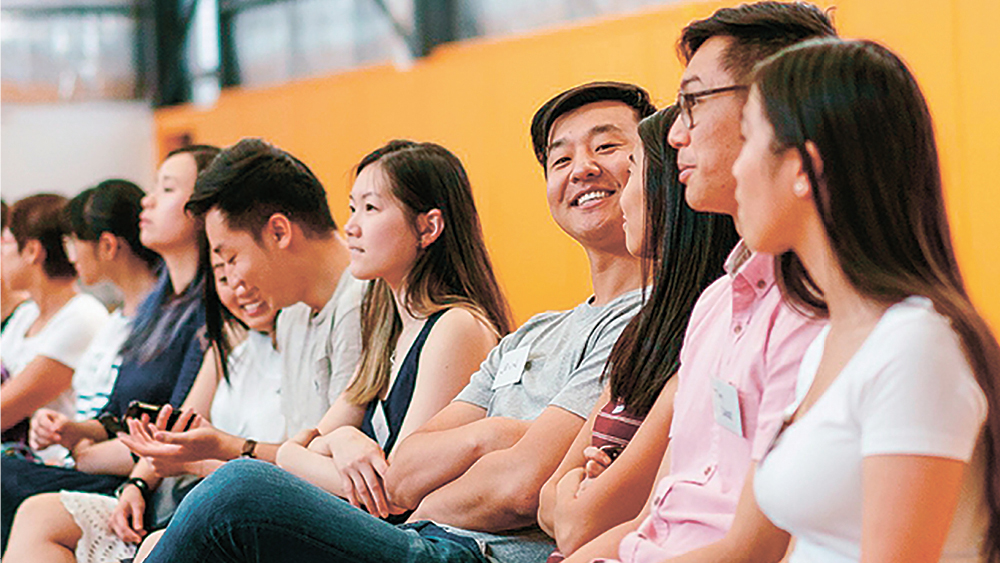“The best people to reach Asians are Asians,” said Ying Yee, senior minister at Chinese Christian Church in Sydney’s north, at a conference to officially launch The Gospel Coalition Australia’s (TGCA) Asian Network on Friday night.
“We’re always about the Gospel first, before we are Asian,” said Yee, a board member of the new Asian Chapter. But, he said, he truly believed that Asian people were uniquely positioned to reach other Asians.
“It’s difficult work, navigating the maze of gospel and culture.”
“It’s difficult work, navigating the maze of gospel and culture,” said Yee, adding that the TGCA Asia chapter would help churches to “stay focused and keep going”.
According to Adam Ch’ng, another board member and pastor of Cross and Crown Church in Glen Waverley, Victoria, the TGCA Asia network will work to unify ministries to Asian-Australians, while resourcing the broader church to better serve and reach the Asian-Australian community.
In a call for more Asian churches to join the new Asian Chapter, Nam Doan, pastor at Kingsgrove Vietnamese Evangelical Alliance Church in NSW told conference delegates that “we naturally gravitate towards like-minded people. We went looking for leaders who had a heart for the next generation of Asian Christians in Australia. And quite quickly we formed this coalition of people passionate about Asians reaching other Asians.”
Matt Kang, pastor at Cheil English Ministry, a Korean church in Sydney, said that the face of Australia is changing, as the majority of Australian immigrants come from the Asian continent.
Multi-ethnic churches are not great at reaching Asian people.
“We are thankful to God that there are so many Asians in Australia. But we’re concerned that so many of them don’t know the gospel. It’s such an opportunity but we can’t do it alone. We need to work together.”
Asked during a Question and Answer session whether Asian Christians should be encouraged to attend multi-ethnic churches, Ying Yee said it depends on your motive.
“If you feel called to cross-cultural ministry, then that could be the right decision for you,” said Yee. “But I think many Asian people end up going to ‘multi-ethnic’ churches because they don’t like being Asian. There’s some shame or embarrassment there. And I think we need to think twice about that.”
Yee said that, in his experience, “multi-ethnic churches are not great at reaching Asian people.”
“Take my parents, for example. They can only speak Chinese. A multi-ethnic church is not the right place for them.”
One of the big needs that attendees identified within the Asian Church in Australia is more Asian leaders. According to Steve Oh, pastor at Sydney Living Hope, a predominantly ethnically Korean church, young people considering ministry can struggle with family pressure
“In a lot of cases, their parents – 1st generation migrants – have sacrificed a lot to come to Australia, and there’s an expectation of economic stability for their children, which you may not necessarily have in pastoral ministry.
“Many of these parents are godly people who would agree that we need more Asian ministry leaders. Just … not my children! It’s something we continue to wrestle with, and need to support young leaders as they deal with those expectations.”
The collectivism within Asian churches means that there’s that thickness to relationships.
Adam Ch’ng said one of the biggest cultural differences between primarily Anglo-churches and Asian churches is “the thickness of relationships”.
Speaking with Dominic Steele for an interview with The Pastor’s Heart earlier this week, Ch’ng said, “The church I grew up in, family life church life and social life were all pretty much the same thing. But when I went to an evangelical Anglican church as an adult – wonderful church, taught the Bible well – but you’d say goodbye at the end of Sunday and you didn’t talk to people again until the next Sunday.
“The collectivism within Asian churches means that there’s that thickness to relationships. And ‘Word’ ministry can be pulpit-centred, but it’s never restricted to the pulpit. There’s so much more that happens over coffee, over lunch, over dinner.”
Ch’ng told Eternity that the Asia Network is in the process of creating a Korean Australian pastors’ network and also exploring ways to unite and serve Vietnamese Christians across the country. The Asian network will also produce online resources that equips the church to reach across cultures.
Email This Story
Why not send this to a friend?




